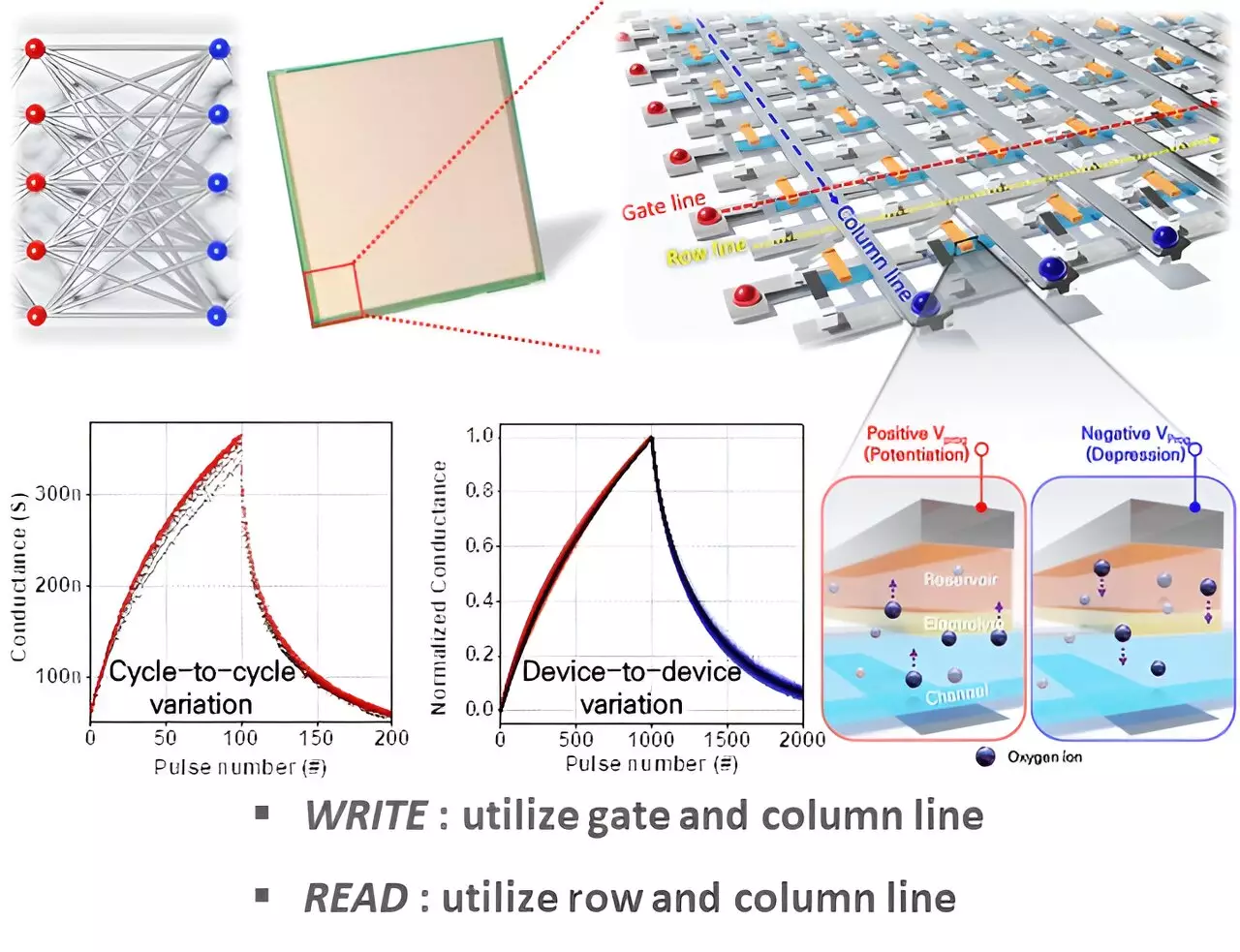In a recent study published in Science Advances, a research team has made a breakthrough in the field of artificial intelligence by showcasing the potential of analog hardware using Electrochemical Random Access Memory (ECRAM) devices. This advancement in technology holds promise for commercialization and could revolutionize the way AI computation is performed.
With the rapid growth of AI technology, traditional digital hardware such as CPUs, GPUs, and ASICs have reached their scalability limits, especially with applications like generative AI. This has led to the exploration of analog hardware specialized for AI computation, which offers advantages such as parallel processing and continuous data flow. However, meeting the diverse requirements of computational learning and inference has presented challenges for researchers.
The research team, led by Professor Seyoung Kim, focused on ECRAM devices due to their unique ability to manage electrical conductivity through ion movement and concentration. Unlike traditional semiconductor memory, ECRAM devices feature a three-terminal structure that allows for separate paths for reading and writing data, resulting in operation at low power. By fabricating ECRAM devices in a 64×64 array, the team was able to demonstrate excellent electrical and switching characteristics, along with high yield and uniformity.
Maximizing AI Computations
One of the key findings of the study was the successful application of the Tiki-Taka algorithm, an analog-based learning algorithm, to the ECRAM devices. This algorithm helped maximize the accuracy of AI neural network training computations, showcasing the potential for analog hardware in improving learning outcomes. The researchers also highlighted the importance of the “weight retention” property of hardware training on learning, confirming that their technique does not overload artificial neural networks.
Commercialization Potential
This research is significant not only for its advancements in AI computation but also for its potential for commercialization. By demonstrating the impact of ECRAM devices on AI performance and showcasing the scalability of analog hardware for processing analog signals, the research team has opened up new possibilities for the future of artificial intelligence technology.
The research team’s work on analog hardware using ECRAM devices represents a significant step forward in the field of artificial intelligence. By addressing the limitations of traditional digital hardware and showcasing the potential for commercialization, this study paves the way for the integration of analog technologies in AI computation, promising a future where computational performance can be maximized with innovative hardware solutions.


Leave a Reply